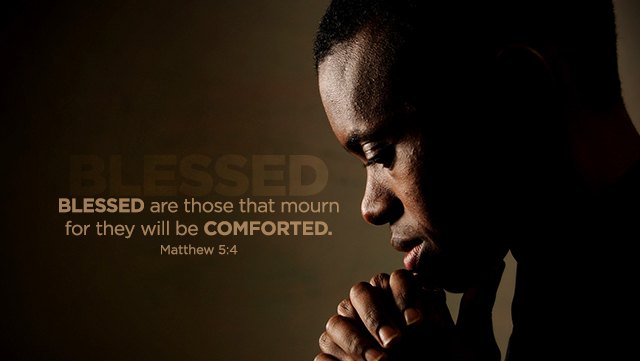7 Stages: What to Expect During Grief & Loss
Grief is a natural response to loss. Losing a loved one can be very painful as everyone experiences grief in different ways. People are often confronted with a range of emotional ups and downs during the healing process. Yet with the right support structure and balance, healthy grieving can be achieved in order to enjoy life again. God gives us His strength to lean on to help us cope. Matthew 5:4 says, “Blessed are those that mourn for they will be comforted.” Psalms 147:3 states, “He heals the brokenhearted and binds their wounds.”
- SHOCK & DENIAL-
You will probably react to learning of the loss with numbed disbelief. You may deny the reality of the loss at some level, in order to avoid the pain. Shock provides emotional protection from being overwhelmed all at once. This may last for weeks.
- PAIN & GUILT-
As the shock wears off, it is replaced with the suffering of unbelievable pain. Although excruciating and almost unbearable, it is important that you experience the pain fully, and not hide it, avoid it or escape from it with alcohol or drugs. You may have guilty feelings or remorse over things you did or didn’t do with your loved one. Life feels chaotic and scary during this phase.
In Isaiah: 53:4-6, it says, “Surely he took up our pain and bore our suffering, yet we considered him punished by God, stricken by him, and afflicted. But he was pierced for our transgressions, he was crushed for our iniquities; the punishment that brought us peace was on him, and by his wounds we are healed. We all, like sheep, have gone astray, each of us has turned to our own way; and the Lord has laid on him the iniquity of us all.”
- ANGER & BARGAINING-
Frustration gives way to anger, and you may lash out and lay unwarranted blame for the death on someone else. Please try to control this, as permanent damage to your relationships may result. This is a time for the release of bottled up emotion.You may rail against fate, questioning “Why me?” You may also try to bargain in vain with the powers that be for a way out of your despair (“I will never drink again if you just bring him back.”)
- “DEPRESSION”, REFLECTION, LONELINESS-
Just when your friends may think you should be getting on with your life, a long period of sad reflection will likely overtake you. This is a normal stage of grief, so do not be “talked out of it” by well-meaning outsiders. Encouragement from others is not helpful to you during this stage of grieving.During this time, you finally realize the true magnitude of your loss, and it depresses you. You may isolate yourself on purpose, reflect on things you did with your lost one, and focus on memories of the past. You may sense feelings of emptiness or despair. According to the Bible, Psalms 34:18 says, “The Lord is close to the brokenhearted and saves those who are crushed in spirit.”
- THE UPWARD TURN-
As you start to adjust to life without your dear one, your life becomes a little calmer and more organized. Your physical symptoms lessen, and your “depression” begins to lift slightly. In Joshua 1:9, it says, “Have I not commanded you? Be strong and courageous. Do not be afraid; do not be discouraged, for the LORD your God will be with you wherever you go.”
- RECONSTRUCTION & WORKING THROUGH-
As you become more functional, your mind starts working again, and you will find yourself seeking realistic solutions to problems posed by life without your loved one. You will start to work on practical and financial problems and reconstructing yourself and your life without him or her.
- ACCEPTANCE & HOPE-
During this, the last of the seven stages in this grief model, you learn to accept and deal with the reality of your situation. Acceptance does not necessarily mean instant happiness. Given the pain and turmoil you have experienced, you can never return to the carefree, untroubled YOU that existed before this tragedy. But you will find a way forward. Romans 8:28 tells us that, “And we know that in all things God works for the good of those who love him, who have been called according to his purpose.”You will start to look forward and actually plan things for the future. Eventually, you will be able to think about your lost loved one without so much pain; sadness, you may cry still from time to time which is completely normal. You will once again anticipate some good times to come, and yes, even find joy again in the experience of living.
Written by: Bonne’ Moon






